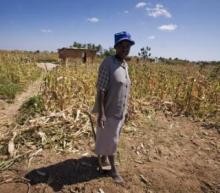/ library resources
Showing items 100 through 108 of 9518.It is estimated that up to 84% of Malawians earn their livelihoods directly from agriculture - it contributes over 90% to export earnings, 40% to GDP and accounts for 85% of total employment.
Paper systematically evaluates the political economy of Zimbabwe's emerging land policy in the 1990s in the context of other land reform programmes in Southern Africa.
This white paper looks at one example of private land reform, Agros International, within the context of the global and historical scope of land reform methods.The paper states that methods of land reform can be understood within three general categories: government-directed reform
Assesses the process of rural land registration in Mozambique and the outcomes for poor and marginalised groups.
The poor in Mozambique survive off the land, but what would the consequences be if the land was privatised?
This document summarises the proceedings from a conference organised by International Institute for Environment and Development (IIED) , Natural Resource insitute (NRI) and the Royal African Society in November 2004.The conference brought together a wide range of interest groups including, Africa
The protection of agricultural land is an important issue because the area of food production per capita will be decreasing by several estimations in the next decades. The planning measures to ensure the preservation of valuable arable land are among the objectives of county plans in Estonia.
This paper documents a participatory approach for supporting black South Africans in developing knowledge and skills to use land, acquired under the land reform scheme, more effectively.
Paginering
Land Library Search
Through our robust search engine, you can search for any item of the over 73,000 highly curated resources in the Land Library.
If you would like to find an overview of what is possible, feel free to peruse the Search Guide.



